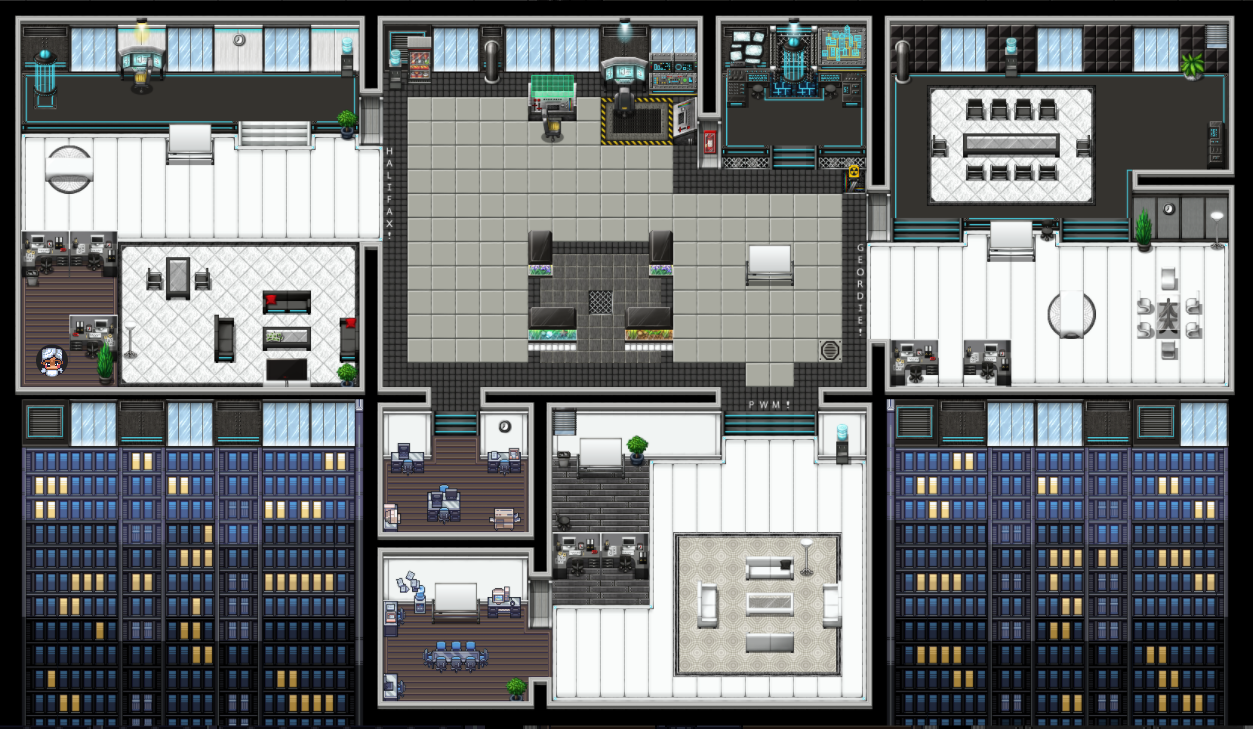MONTREAL
Playwrights’ Workshop Montréal
While digital tools and techniques have long been a part of theatre, the pandemic has served as a catalyst for the adoption of new technologies and practices. In our leg of the Digital Dramaturgy Initiative, we looked for projects which were aiming to be presented digitally but were in an early stage of their technological development. Coming from a design background, we know how bringing in other artists early into the creation process can enrich and evolve the final piece and lead to a more fully integrated product. It was our hope that by connecting the teams of artists with industry experts as well as with each other early in their development process’ that the scope and finesse of their digital exploration would be expanded.
When it comes to digital creation there can often be a large gulf between artistic dreams and technical knowledge, leaving artists in a place where they do not even know where to start researching. It is impossible to find all the answers in a week-long residency but it was our goal to point these artists in the right direction and leave them with an improved digital literacy as well as an expanded view of what is possible digitally.
The ways that we create and interact with each other has changed so drastically since March 2020 that the residency itself was also a form of experimentation. For our virtual users, we wanted to find ways to avoid the ever present “Zoom fatigue” which plagues online work. We also strove to create an experience that left the virtual users feeling just as involved and engaged as the in person participants. Instead of using Zoom or other similar conferencing platforms we decided to build a space on Gather. While Gather had limitations (many of which have since been patched), it was able to provide an experience that felt more dynamic and gave users more agency than simple video conferencing calls. We also used Miro quite extensively throughout the week as a way to mimic the feeling of all being in a room together with a large whiteboard or a pile of sticky notes.
The physical portion of the residency took place in the two neighbouring studio spaces of PWM and Geordie Theatre, on an alternating morning/afternoon schedule for participating groups. This schedule, coupled with the always open virtual space of Gather, meant that participants and leaders had many opportunities and locations to meet in real-time with other participants and dramaturgs–forming a generally cohesive, sometimes chaotic, creative and immersive collective experience.
“Digital Dramaturgy for me lives in the intersection between the story that needs to be told, and the form it will take in meeting an audience... That intersection is rich with possibilities - but only if you have access to the technology. ”
Note from Emma Tibaldo, former Artistic Director of Playwrights’ Workshop Montréal
A Point of View
I love seeing the impossible on stage. I love seeing the everyday revealed in a surprising way. Technology can make the complex seem simple, effortless, yet surprising to the senses. The Digitial Dramaturgy Initiative was developed from our collective need to understand what is possible in the creation process, identify the technology available to make it happen, source ways to get access to it, and finally, making that information available to everyone.
The decision to look at these questions through distinct residencies in Montreal, Winnipeg, and Vancouver, allowed us to look at different phases of the creative process. The residency in Montreal, led by digital dramaturgs potatoCakes_digital, focused on creating while in a mandated lockdown. They developed a platform for meeting, sharing, and creating. This involved setting up two functional creation studio spaces, as well as a virtual, multi-room universe in gather.town, linked to individual Miro boards for collecting research, creating timelines, and for investigating the work being done by the different creative ensembles.
A guiding principle emerged-the sharing of knowledge, without barriers, is of paramount importance. It was incredible to discover how many creators experimenting with technology were eager to share their knowledge, and their hard won discoveries. It is essential that the tools and expertise be made available for experimentation, that is what will make the difference. The DDI residencies were created to narrow the gap between the idea and the ability to realize it through digital means. I fervently hope this type of experimentation can continue to be made available to artists.
Digital Dramaturgy for me lives in the intersection between the story that needs to be told, and the form it will take in meeting an audience, when it includes digital technology, be it on stage or on a personal viewing device. That intersection is rich with possibilities-but only if you have access to the technology.
It is a huge new learning curve. I am excited by the intersection-the different ways of making and receiving a theatre piece. Not by making it a film, but by taking the principles of theatre, it’s magic, it’s connection to a live audience, and transferring that experience to digital. Imagining how to make the work interactive-infusing it with liveness, expanding what we accept as a theatrical experience.
I have opened myself to imaging a theatre that can travel great distances instantaneously. An interconnection between artists across large distances. New ways of creating when occupying different physical spaces. Experimenting with digital platforms to create that live theatrical experience. A new art form that springs from a desperate need to connect on a human level even when not occupying the same space. For me, Digital Dramaturgy is the search for the human connection when embracing the digital as part of the creation process.
Land Acknowledgement
Playwrights’ Workshop Montréal is located on unceded Kanien’kehà:ka/People of the Flint (Mohawk Nation) territory. Tiohtià:ke/Broken in two (Montreal) is historically and presently a gathering place for many First Nations.




